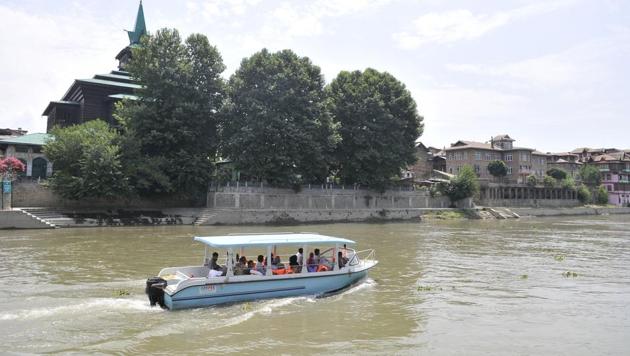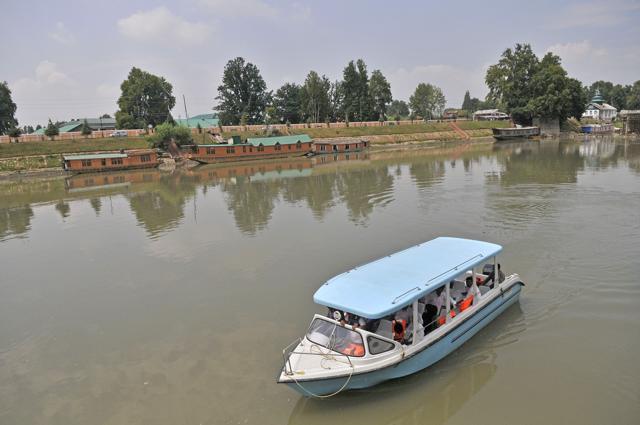Venice-like waterway transportation may be reality in Srinagar soon
The Jammu and Kashmir government has started a major trial of waterway transportation on the Jhelum as a forerunner before attempting to kick-start a full-fledged river transport system in the state.
The glistening Jhelum glides through Srinagar, flowing past heritage buildings, historical shrines and ancient bridges. The romance ends there. The river has never been tapped successfully as a watery highway in a city struggling to cope with roads overrun by cars. But Jhelum could be the way for people in Srinagar to travel as the Jammu and Kashmir government this July began trials for water transport programme on the river.

If the month-long tests succeed, a river-transport system stretching from south Kashmir to Srinagar will be opened.
The trials were conducted from July 11 with two motorboats of the Jammu and Kashmir Tourism Development Corporation (JKTDC) and a motor-driven shikara is likely to run 5km every day between the iconic Zero Bridge in downtown Srinagar and Zaina Kadal in the old quarters.
A river ferry could be a muchneeded alternative to avoid the chronic congestion on the road connecting these two points.
Baseer Ahmad Khan, the Kashmir divisional commissioner, said as much.
“People will be able to steer clear of road traffic snarls. The service will save commuters’ precious time. It can be a tourist attraction too, giving visitors a chance to see the cityscape.”
The Jhelum programme aims at reviving the traditional water transport system in Srinagar, known as an outdoorsy city of tree-hugging Mughal gardens and the Dal lake, which abounds with shikaras and houseboats.
Planners have set their ambitions high, saying the Jhelum could power Srinagar’s potential to own a robust river transport system like Venice and Amsterdam.
But environmentalists cautioned that the push should be eco-savvy — no oil spill from boats, littering and tighter curbs on fuel efficiency and emission.
“If the service is occasional and for tourists only, then there will very less side-effects. But if developed as regular mode of public transport, then proper environmental assessment is needed,” said Shakil A Romshoo, the head of Kashmir University’s department of earth sciences.

The trials began after chief minister Mehbooba Mufti asked officials to design steps for water transport on the Jhelum and the lakes such as Dal and Wullar dotting the scenic Himalayan landscape.
“The plan is to try and involve shikarawallahs. Small motors can be fitted to the shikaras to power them on the Jhelum. We will offer incentives and this will boost entrepreneurship,” said Mahmood Ahmad Shah, the state’s tourism department director.
Preliminary test results and the people’s response got the officials excited. Khan said similar services are launched on the Dal, and the first ferry is for students of Kashmir University.
“The boat cuts through the Dal and takes them straight to the jetty near the university.”
Motorboat driver Ghulam Dar’s 25-seater trial ferry is always packed to capacity between Zero Bridge and Zaina Kadal. “We are now doing two trips a day,” he said on Friday.
His passengers are more than happy. The ride is smooth, fast and free, at least for now.





